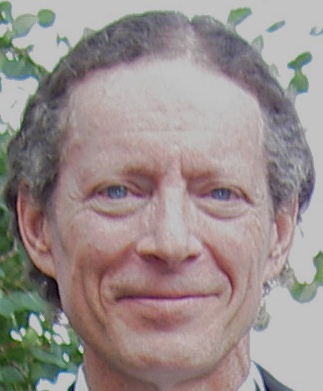"Of course we will have fascism in America but we will call it democracy." --Huey Long
"Fascism is not defined by the number of its victims, but by the way it kills them." --Jean-Paul Sartre
"Fascism ought to more properly be called corporatism since it is the merger of state and corporate power." --Benito Mussolini
The masters of the electronic voting machines have spokenPreliminary analysis of exit polls (for senatorial and gubernatorial races) reported immediately after voting ended compared with the announced vote results show a statistically significant shift in favor of Republican candidates, the odds of which are about a million to one. [1]
This electronic theft is nothing new, but in the aftermath of this year's Supreme Court (5 to 4) decision giving the green light to unlimited campaign contributions, the blatancy is impressive. The strategy is simple: leverage the bottomless slush fund of corporate dollars and flood the nation's airwaves and mailboxes to twist enough minds to tighten the electoral races, so that those who control the software to the electronic voting machines can create the illusion of right-wing electoral success.
It's time to consider what can be done to drop the curtain on this charade and the policies that result from this illegitimate elevation of corporate shills to executive, legislative, and judicial office.
The American brand of fascismThere are as many varieties of fascism as there are examples, beginning with Germany (Hitler) and Italy (Mussolini) during the period leading up to and including WWII, followed by Cuba (Batista), Spain (Franco), Paraguay ( Stroessner), Nicaragua (Somoza), and Chile (Pinochet), et al.
The brand of fascism currently practiced in the United States by European and North American financiers and bankers--who control a major portion of the world's money supply, as well as the dominant military and intelligence apparatuses--has commonalities with many of its predecessors as well as a few important differences.
Commonalities include: control over the state by unelected persons ("the hidden government," as Teddy Roosevelt called them) or persons whose election is predetermined (through control of the currency, media, and voting process); use of intelligence and security forces to suppress opposition; abrogation of constitutional guarantees and international legal conventions; the justification of torture; and false flag events used to justify imperialism, to name a few.
As so eloquently expressed by U.S. Supreme Court Justice Robert Jackson, the chief prosecutor of the Nuremberg War Crimes Trials following World War II, we must hold such behavior accountable:
If certain acts and violations of treaties are crimes, they are crimes whether the United States does them or whether Germany does them. We are not prepared to lay down a rule of criminal conduct against others which we would not be willing to have invoked against us.
We are now prepared to invoke these rules of criminal conduct and align the crimes of U.S. fascism with the indictments at Nuremberg:
- Participation in a common plan or conspiracy for the accomplishment of a crime against peace (9-11, WMDs, etc.)
- Planning, initiating and waging wars of aggression and other crimes against peace (Iraq, Afghanistan, etc.)
- War crimes (Abu Ghraib, recent WikiLeaks, and attacks on civilians)
- Crimes against humanity
(massive Iraqi and Afghani civilian deaths and torture, plus ongoing
state-sanctioned terrorism: 9-11, Gulf, 2008 economic contraction and
refusal to replenish the money supply; sabotage of property and contract
law [mortgage crisis])
While each of these descriptions applies to a degree, the partial truths to which they call attention unnecessarily obscure the simple nature of the beast. Perhaps it is the erroneous notion that fascism equals Nazism (actually, the term originally referred to Mussolini's regime) that compels otherwise analytical people to deny what is going on here ("good Germans," all). But lack of intellectual rigor is no excuse to mislabel the ruthless abuses to which the world is being subjected. As Orwell so eloquently taught us, the price of removing, destroying, or distorting words and their meanings is that we lose our ability to know what freedom is.
Consider how one of our own presidents defined fascism:
The first truth is that the liberty of a democracy is not safe if the people tolerate the growth of private power to a point where it becomes stronger than their democratic state itself. That, in its essence, is fascism -- ownership of government by an individual, by a group, or by any other controlling private power. --Franklin D. Roosevelt [2]
Gone are the abstract notions of the state as an embodiment of some ethnic or racial or historical ideal (our rulers are multicultural, at least at the level of government employees and the executive, legislative, and judicial branches; the upper echelons of our intelligence services are another story); instead, the state is simply a catalyst for corporate policy. Today's corporate state makes no attempt to legitimize itself even theoretically, as the Italian syndicalists did, by pretending that collective bargaining takes place between management and labor. Premeditated expansion and contraction of the currency is used to steal assets (the fruits of our labor) at fire sale prices. In the U.S., earnings per share for the stockholders and the maintenance of power by the financial elites are the main objectives implemented by illegal means through the so-called "legal" state.
(Note: You can view every article as one long page if you sign up as an Advocate Member, or higher).





